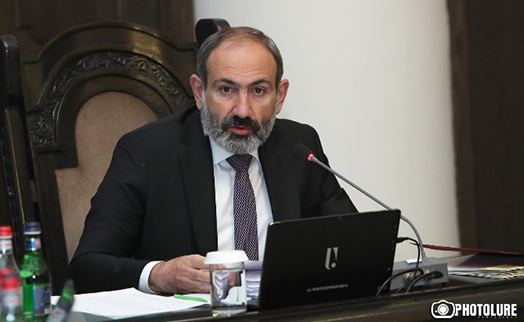YEREVAN, June 4. /ARKA/. Armenian banks faced the problem of non-observance of social distance and discipline of queuing in terms of COVID-19, Central Bank Chairman Arthur Javadyan said Thursday at a government meeting.
Yesterday, users of social networks, at the request of the Prime Minister of Armenia Nikol Pashinyan, distributed photos of violations of the rules for maintaining distance and mask regime. Several cases were recorded in bank and post offices, where people crowded in anticipation of paying off a loan or receiving pensions.
“Yesterday we achieved good results in ensuring social distance in banks, and also the distribution of masks and disinfectants as well as the installation of new equipment. As a result, the situation was resolved to some extent,” Javadyan said.
However, according to him, in the morning there were already two signals about violations of the anti-epidemiological rules, one of which was from a province, and one from Yerevan.
Javadyan said that in the province the matter is related to pensioners and beneficiaries of social programs that did not manage to receive funds.
“On one of them, we even suspect provocative aspects and we contacted the police to resolve the issue,” he said.
In general, as the head of the central bank noted, work is under way now. Banks have drawn lines for distancing, bank officers ask everyone to maintain a social distance, even give out masks, apply to customers through social networks and declare extension of service periods and try to form lines in areas of activity in order to avoid congestion, there is still a discipline problem in some places.
Javadyan also said that today, many banks even when re-registering deposits try to carry out procedures online to maximize security.
“I can’t say that the situation is completely uncontrollable, it’s under control, with the exception of one or two cases. We also exercise control. Bank managers also regulate issues, in particular, redirect additional employees to branches, depending on the load and, if necessary, contact the police. I think that by the end of the day things will be completely put right,” Javadyan said.
The state of emergency, introduced in Armenia on March 16, 2020 and extended to May 14, is again extended until 17:00 on June 13 inclusive.
According to the latest official report released Thursday morning, there are 11,221 confirmed COVID-19 infection cases, 176 deaths and 3,468 recovered patients in Armenia. –0—








